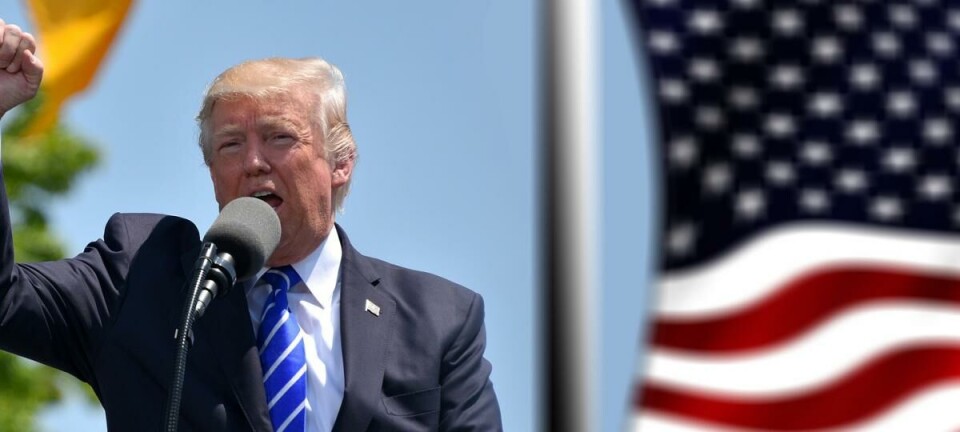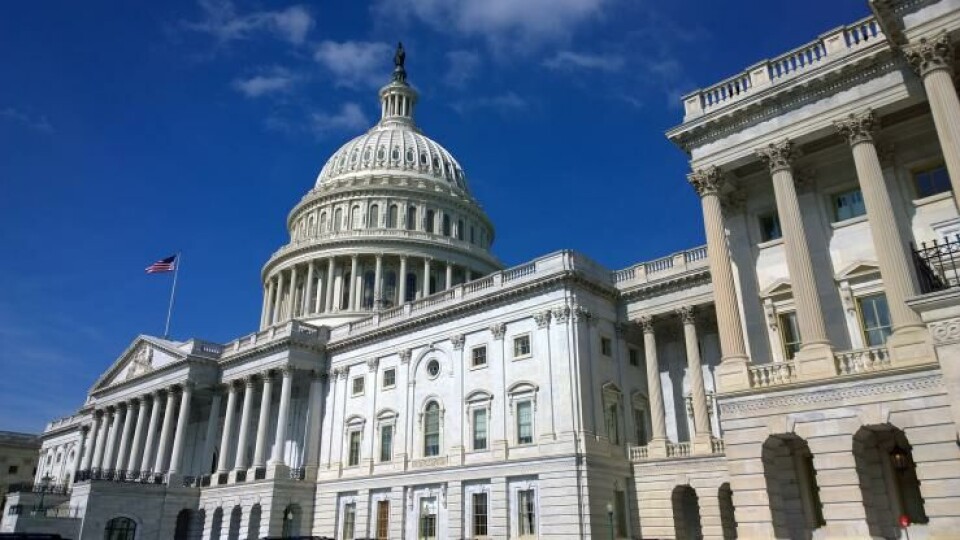article> Opinion/Politics
What does Trump in Office mean to a European?

Despite how distant American politics may seem, as seen from Europe, decisions made on the other side of the Atlantic can have a great impact on the European political landscape.
by David Abidaoud
Contributing Writer
Living in Europe, it is easy to lose touch with the course of American politics. Naturally they are the politics of a nation that is not our own and one may ask oneself why care about the governmental proceedings of a foreign power. The inconvenient truth is that the United States is the western superpower that our European states are aligned with politically, depend on, trade with extensively and have a myriad of treaties with. The economic might of every country in the euro-zone combined is still less than that of the United States and this does not consider the cultural, military and technological significance of the United States. The role of the United States in the world is not entirely clear and perhaps even less so to the inhabitants of the European Union, where the direct influence of the United States is not regularly felt, but its influence is undeniable.
Nobody is a stranger to the antics of the current president elect, Donald Trump, who has gained fame for the controversies he has been the centerpiece of during his term in office. Many have also heard about the impeachment proceedings taking place in the United States as the election draws closer. The impeachment proceedings were started as a result of a scandal between Donald Trump and the president of Ukraine Volodymyr Zelensky. During a recorded phone call, the president asked the Ukrainian government to conduct an investigation into the business affairs of the son of one of Donald Trump’s potential adversaries during the 2020 election: Joe Biden. Joe Biden’s son, Hunter, was a member of the board of the Ukrainian oil company Burisma.
Essentially, Donald Trump demanded that Ukrainian president Zelensky open a corruption investigation against Hunter Biden and threatened to withhold significant Senate-approved military aid to Ukraine if he refused to comply.
The current trial of impeachment is meant to reach a conclusion on whether or not the acts of the president elect were an abuse of power and misconduct. Few outside of Donald Trump’s core supporter base would disagree with the stance that an abuse of power did indeed occur.
There is a catch, however. While it may appear that the man at the head of the most powerful state in the world may finally be replaced by a more reasonable, responsible and less morally questionable individual, this may not be the case. The United States runs on a two party system, consisting of the Democrats and the Republicans. Donald Trump belongs to the Republican party and, so far, his party has expressed nothing but blind support for him. What does this mean for the impeachment proceedings? Basically, the impeachment is a process, started by members of the government with an impeachment inquiry, where facts and evidence are compiled to generate a list of concrete violations. Then, a judiciary committee renders judgement and announces which articles are to be considered by the Senate for conviction. If convicted by the Senate by a supermajority, then the individual in question is removed from office and must then face the justice system.

United States Senate on Capitol Hill, Washington D.C.
The senate, is a collection of Democrat and Republican politicians. There are similar numbers of each party’s representatives. Considering that a supermajority is generally two thirds of the members of the Senate and practically all republican politicians are firmly in the president’s camp, it is unlikely that Donald Trump will be convicted. Meaning he will likely be able to participate in the 2020 election. The voters are divided, the democrats do not currently have a very strong, clear candidate for the election.
This means that ultimately, Donald Trump would have a strong chance of re-election in the 2020 election. Most political analysts would agree that this would not be great for Europe.
We are already on the doorstep of an economic recession and relations with the United States have been strained. There have been billions in tariffs imposed on European goods to the United States and billions in tariffs imposed on United States goods to the European Union. For all climate conscious individuals, the United States' continued feigned ignorance of climate change could be disastrous to the world. From a defensive point of view, the Baltic states would find their freedom in jeopardy, as Donald Trump implies a weak NATO, which is often perceived to be the only thing standing between the Baltic states and Russian imperialist ambitions. This is the reason that the European Union now considers ideas such as a European army, which was once unnecessary as there was the possibility of relying on American military might as a deterrent against foreign powers. In combination with events around the globe, such as Brexit, the expansion of Chinese business activities deep into European markets (for which the EU has even taken steps to ensure critical infrastructure remains in European hands), the previous migrant crisis and climate change, the American political situation has left Europe on unstable footing.
The future of Europe remains uncertain. Much likely depends on the actions of the individual states, the policies implemented and the attitudes of the European states towards collaboration both with each other and with outside nations. Much of this uncertainty is a direct result of the inconsistent foreign policy of the United States in these last few years. It is quite possible that the upcoming political election will determine whether or not the general trajectory of US international policy changes. In any case, Europe is in a vulnerable position and the coming decade will show us what will become of it.





